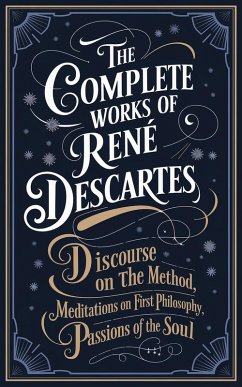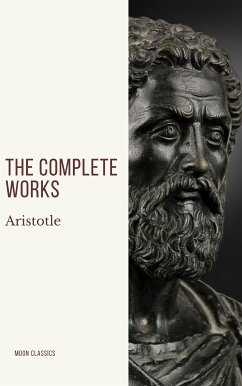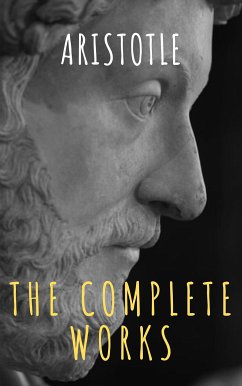
Ethics (Complete Edition) (eBook, ePUB)

PAYBACK Punkte
0 °P sammeln!
Baruch Spinoza's 'Ethics (Complete Edition)' is a monumental work that delves into philosophical inquiries regarding the nature of existence, ethics, and the human experience. Written in the form of geometric propositions, axioms, and definitions, the book presents a systematic and rational exploration of Spinoza's metaphysical and ethical theories. This unique literary style, influenced by Euclidean geometry, sets 'Ethics' apart from traditional philosophical texts of the time, making it a groundbreaking piece in the history of Western philosophy. Spinoza's rationalist approach challenges rea...
Baruch Spinoza's 'Ethics (Complete Edition)' is a monumental work that delves into philosophical inquiries regarding the nature of existence, ethics, and the human experience. Written in the form of geometric propositions, axioms, and definitions, the book presents a systematic and rational exploration of Spinoza's metaphysical and ethical theories. This unique literary style, influenced by Euclidean geometry, sets 'Ethics' apart from traditional philosophical texts of the time, making it a groundbreaking piece in the history of Western philosophy. Spinoza's rationalist approach challenges readers to critically engage with complex ideas about God, nature, and the human mind. The book's emphasis on reason and logic reflects Spinoza's commitment to a coherent and comprehensive understanding of reality. As a prominent figure in the Enlightenment era, Spinoza's 'Ethics' continues to inspire critical thinking and philosophical discourse in the contemporary world. His profound insights into the interconnectedness of mind, body, and spirit offer readers a thought-provoking exploration of human nature and ethics. Recommended for readers interested in delving into the depths of philosophical inquiry and expanding their understanding of metaphysical concepts through a rationalist lens.
Dieser Download kann aus rechtlichen Gründen nur mit Rechnungsadresse in A, B, BG, CY, CZ, D, DK, EW, E, FIN, F, GR, H, IRL, I, LT, L, LR, M, NL, PL, P, R, S, SLO, SK ausgeliefert werden.













